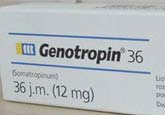
Earlier this month the US Food and Drug Administration (FDA) authorised the recombinant DNA human growth hormone, Omnitrope, a generic competitor for Pfizer's Genitropin. Omnitrope is manufactured by the generic arm of Switzerland's Novartis, Sandoz.
This follows an earlier deferral of a decision on the drug by the FDA in 2004, at wh
 ich time uncertainty regarding scientific and legal issues was cited although no deficiencies in the application were identified. However, at this same time, the drug was approved by the Australian Therapeutic Goods Administration (TGA). European regulators approved the drug earlier this year, when the European Medicines Agency (EMEA) concluded that the drug exhibited comparable quality, safety, and efficacy to that of the Pfizer reference drug, Genotropin. Sandoz filed a lawsuit against the FDA in late 2005 seeking a ruling on the drug.
ich time uncertainty regarding scientific and legal issues was cited although no deficiencies in the application were identified. However, at this same time, the drug was approved by the Australian Therapeutic Goods Administration (TGA). European regulators approved the drug earlier this year, when the European Medicines Agency (EMEA) concluded that the drug exhibited comparable quality, safety, and efficacy to that of the Pfizer reference drug, Genotropin. Sandoz filed a lawsuit against the FDA in late 2005 seeking a ruling on the drug.The recent approval has been described in the Financial Times as a move closer towards generic competition in biological medicines, although in a article in The Boston Globe is less optimistic, suggesting that the relatively simple case of Omnitrope does not make the process clearer for manufacturers of recent blockbuster biotechnology drugs. In that article, Ken Kaitin, director of the Tufts Centre for the Study of Drug Development, suggests growing pressure upon regulators not only from the companies involved, but also from third-party payers. At the same time, however, pharmaceutical and biotechnology lobbyists are resisting the preparation of guidelines arguing that the complexity of biological drugs makes the approval of generics too complicated. Strong lobbying pressure is coming from the Pharmaceutical Research and Manufacturers of America (PhRMA), and the Biotechnology Industry Organization (BIO).
However, interviewed in that same article, Kathleen Jaeger, Chief Executive of the Generic Pharmaceutical Association (GPhA), regards the ruling as showing that the science supports the development of a clear approval process. To this end, legislative changes by Congress are desirable to accelerate the process. The GPhA is working with various policy makers, including Henry Waxman and Orrin Hatch of the Hatch-Waxman Act, to push for legislation to facilitate the entry of cheaper generic drugs into the market.



No comments:
Post a Comment